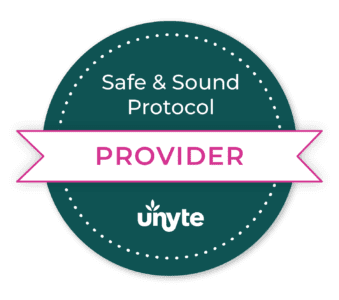Ketamine Assisted Psychotherapy
When talk therapy isn’t enough, there is another path.
At Cypress Counseling & Wellness, we are proud to offer Ketamine-Assisted Psychotherapy (KAP)—a research-supported, trauma-informed approach that combines the neuroplastic potential of ketamine with guided therapeutic integration. KAP may help clients move through long-standing emotional pain, trauma, and disconnection when traditional therapy alone hasn’t brought relief.
What is Ketamine Assisted Psychotherapy (KAP)?
Ketamine-Assisted Psychotherapy (KAP) involves the use of low-dose ketamine—a legal, FDA-approved medication with growing support in the treatment of depression, PTSD, anxiety, and emotional shutdown—in a therapeutic setting, under the guidance of a trained mental health professional.
At Cypress, KAP is a collaborative process between client, therapist, and medical provider. The ketamine itself is not the therapy—it’s a catalyst that may help the brain soften rigid patterns, access stored emotional material, and engage new pathways for healing.
How It Works
We know trying something new—especially something that alters consciousness—can feel overwhelming. Our process is designed to be safe, supportive, and deeply intentional at every step.
Here’s what you can expect:
1. Psychiatric Evaluation & Prescription
Before beginning KAP, you’ll meet with a licensed prescriber for a medical consultation. If KAP is a good fit, the prescriber will send a low-dose ketamine prescription directly to your home—two oral tablets to be taken under therapeutic guidance.
2. Preparation Session
Before your first ketamine session, you’ll meet with your therapist to build safety, set intentions, and explore what you hope to gain. This session lays the emotional and psychological foundation for the experience and helps reduce anxiety by answering any lingering questions.
3. Ketamine-Assisted Session (3 Hours)
You’ll bring your medication to our office for your scheduled session. In a calm, private setting, you’ll take the tablets and remain fully supported by your therapist for the duration of the experience.
The active effects of ketamine typically last about one hour, during which clients often access deeper emotional states or insights.
The full session is three hours, giving time for arrival, grounding, processing, and emotional integration.
You’ll never be left alone—you will be supported throughout by a trained therapist who understands both the medicine and the mind.
4. Integration Session
Roughly a week later, you’ll return for a follow-up session to reflect on your experience, explore what surfaced, and begin integrating insights into daily life. This session is just as important as the ketamine session itself, helping you make meaning from the experience and apply it to your healing work.
What KAP Can Help With
Ketamine-Assisted Psychotherapy (KAP) is not a one-size-fits-all treatment—but for some, it offers a powerful breakthrough when other approaches have fallen short.
KAP may be particularly helpful for individuals who are experiencing:
Depression that hasn’t responded to traditional treatment
Whether you've tried medication, talk therapy, or both—KAP may help soften the grip of chronic, treatment-resistant depression by loosening entrenched neural patterns and reigniting access to emotion and motivation.
Complex or developmental trauma
For those carrying deep, long-standing trauma—especially from early life—KAP can help bypass overactive defense systems and allow unresolved material to surface gently, within a safe therapeutic container.
PTSD
KAP may support the processing of traumatic memories, reduce hyperarousal and emotional numbing, and help create new internal narratives that foster healing and resilience.
Emotional numbness or disconnection
Some people don’t feel overwhelmed—they feel nothing. KAP can help reawaken emotional range, increase self-compassion, and restore a sense of connection to oneself and others.
Existential distress or meaning loss
KAP may support those facing spiritual crises, chronic grief, or a sense of purposelessness by facilitating insight, symbolic awareness, and a felt sense of perspective or reconnection.
Anxiety that feels somatically “stuck”
Rather than targeting racing thoughts, KAP may help clients access and release anxiety that’s stored in the body, gently unraveling physical tension and hypervigilant patterns.
Feeling “stuck” in therapy
If you’ve done the work—talked, journaled, processed—and still feel like something is locked just out of reach, KAP may offer the shift you need to finally move forward.
Ready to Learn More?
If you’re curious about whether KAP could be right for you, we’d love to talk.
Use the button below to request a consultation.
You’re not broken. You may just need a new way forward.
 (281) 305-9387
(281) 305-9387





